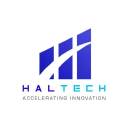Home » The Impact of COVID-19 on Early-Stage Investing and Fundraising in the Ontario Ecosystem
The Impact of COVID-19 on Early-Stage Investing and Fundraising in the Ontario Ecosystem

Many startups in Ontario are currently navigating an altered investment landscape in 2022. This post will explore how COVID-19 has impacted early-stage investing and fundraising, and what options you should consider as a result.
Exiting took on a whole new meaning because of COVID-19
People exiting urban cities, people exiting careers and people exiting early-stage investing. With all the flux, startup founders are left wondering where to look for early-stage funding after the fallout.
It helps to understand why some people exited early-stage investing: losses in stock market portfolios and even their investments in other ventures that suffered losses, either or both, impacting their overall net wealth.
Even when investors didn’t necessarily lose money due to COVID-19, some are being conservative about the lasting impacts to markets and industries and feel too uncertain to make bets on the market analysis and opportunities ahead.
In 2020, there were significantly fewer early-stage investments, fewer active investors and more inactive investor communities. The National Angel Capital Organization’s (NACO) annual report details what investing was like in 2020, including identifying that mean company valuations were lower than in prior years.
While we await 2021’s final investing tally, there is evidence that investment activity at least met, or more likely, exceeded 2020 levels. As angels became comfortable with the new investing realities of Covid-19 (use of online meetings, revised growth sentiments), active investors appeared to re-engage in the marketplace, providing encouraging signs for companies seeking capital.
Moving Forward
Entrepreneurs seeking angel investment should recognize that organized angel investment meetings and particularly in-person investment meetings remain impacted by COVID-19’s presence, and as such, are likely more difficult to access. Considering this, entrepreneurs should adjust expectations and act accordingly in this environment.
- Check in with the angel groups (for a partial listing of Ontario groups). Consider what makes sense either geographically for your company and/or where their investment interests are aligned with yours. Connect with the executive director or analyst responsible for interviewing and screening companies for pitch session opportunities. Personal interaction increases your chances of being considered when selection committees are reviewing the many companies applying. New angel investing may not be very robust YET. However, investing activity tends to track with the broader economic activity. As such, as the economy recovers, investing activity should rebound as well.
- Banks are now bullish about startups. Smart debt may be available and better for some companies. It’s important to know whether your company would benefit more from debt versus early dilution with angel investing.
- Relationships matter more than ever. Establishing a communication plan when you are fundraising is key to keeping track of good connections and managing communication frequency and depth with prospective investors or powerful advisors who need to be aware of what’s new and relevant.
Key considerations when raising capital in uncertain economic times
Mindset will play a heightened role during more uncertain times. Risk-aversion and uncertainty will cause investors to question early-stage ventures’ prospects and investment outcomes more closely. For a new revenue generating company with modest growth, investors will likely ask for a lower valuation than what they might have asked for pre-Covid. Furthermore, investors can be expected to ask for more flexible or demanding terms. And, more than ever, investors will expect founders to have used at least some of their own capital to finance their company’s early operations. However, having the mindset to accommodate such requests while introducing opportunities to reward the entrepreneur’s team when milestones are achieved, will facilitate the chance of an agreement while incenting all parties to benefit from the investment.
It should be noted that, despite difficulties that currently exist in the ecosystem, there will always be “HOT” companies; those able to take advantage of the current investment and industry climate. These companies may, in fact, have more choice for investors who are seeking de-risked companies, improving their valuation prospects.
Investment Readiness
If you are actively fundraising, you will be expected to have carefully evaluated your company and are prepared to explain:
- Your investment thesis, in simple, understandable terms.
- Your valuation and a rationale for it.
- You understand the benefits and responsibilities of selling equity (or quasi-equity such as convertible debt) as compared to raising venture debt, and the impact of early dilution on your ownership.
- You have established a proper and “clean” cap table. Or, at least, you are prepared to simplify it if necessary.
- You have properly established and populated a deal room. DropBox and Google Drive are not very secure ways of sharing documents with prospective investors. Today there are many vendors offering secure deal room software.
- Investors will expect you to provide your most recent years of financial statements as well as a 3-year financial forecast.
Looking for a deeper dive into how to prepare for investment? Haltech members save 50% on our Investment Readiness program.
Takeaways
- Companies are raising money, even in the current challenging environment. It may take a little more patience, ingenuity or effort, but there are investors looking to deploy funds.
- Recognize that being able to articulate a succinct investment thesis may be challenging to develop, but will pay dividends beyond attracting investors, as you will have a better understanding of your position in your marketplace and partners and employees will use this precise language to communicate with prospective customers.
- Stay positive. Regardless of whether you are raising equity or taking on venture loans, never lose sight of your customer’s needs. Ultimately, it all starts with the customer. Keeping them incredibly happy and excited about your product or service is what will drive growth and lead to your ultimate success. Challenging times can surface greater opportunities to support clients resulting in identifying new growth opportunities.
The Haltech team wishes everyone a great start to 2022 and we look forward to supporting our founders!
Image retrieved from Unsplash.
Written by:

Idas Levato
Programs & Operations Manager | Haltech

David Wright
Investment Readiness Advisor | Haltech
Founder | Cassio Capital Advisors
The post The Impact of COVID-19 on Early-Stage Investing and Fundraising in the Ontario Ecosystem appeared first on Haltech.
Haltech
https://haltech.ca
Haltech is at the nexus of Halton Region’s innovation ecosystem, working with technology companies to accelerate innovation for business growth. We help technology entrepreneurs and companies to connect, collaborate and transform good ideas and product innovations into well positioned, growing ventures. Haltech offers a wide range of FREE services for qualifying tech entrepreneurs and businesses including business accelerating advising, entrepreneur development, and corporate innovation support.


